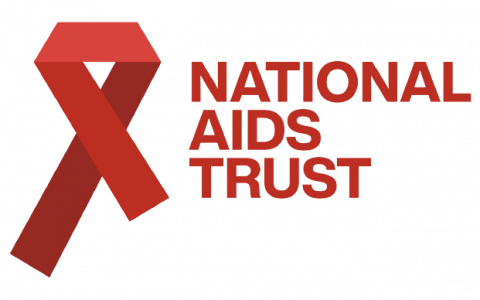Recommendations
1 Adopt an integrated, outcomes-focused and patient-centred approach to long-term HIV care
2 Expand national monitoring of long-term HIV care and outcomes
3 Fund cohort studies to provide information on the long-term health of people living with HIV
4 Combat stigma and discrimination within health systems
5 Upscale involvement of the HIV community in priority setting at country level
On 29 November 2017, the multi-stakeholder European initiative “HIV Outcomes: Beyond viral suppression” launched recommendations on the long-term health, well-being and chronic care of people living with HIV (PLHIV).
The recommendations are the outcome of a year-long collaborative process to capture the perspectives and expertise of people living with HIV, clinicians, public health professionals, and the wider HIV community. Two expert roundtables were held – in December 2016 and June 2017 respectively – to identify priority issues in relation to the long-term health and well-being of PLHIV. In September 2017, an expert workshop was held to develop and discuss draft recommendations.
The final recommendations were then launched at the European Parliament with cross-party support from Members of the European Parliament (MEPs) Christofer Fjellner (European People’s Party, Sweden), Eva Kaili (Socialists and Democrats, Greece) and Gesine Meißner (Alliance of Liberals and Democrats for Europe, Germany).
1. Adopt an integrated, outcomes-focused and patient-centred approach to long-term HIV care
People living with HIV require access to a range of health services beyond just their HIV treatment. This includes services for: prevention, treatment and management of comorbidities; mental health and neurocognitive impairment; and advice and support in relation to sexual and reproductive health. Such multidisciplinary, multispecialist care requires systematic coordination and a personalised approach – not only to ensure that all relevant services are provided, but also streamline service provision, ensure patient-safety (for example, in relation to polypharmacy and drug-drug interactions), and to enable effective communication between the different care providers involved.
A designated healthcare professional responsible for care coordination should be assigned to each person diagnosed with HIV. The care coordinator should develop, in partnership with the patient, a personalised care plan that addresses individual circumstances in relation to clearly defined health outcomes. The care plan should be regularly reviewed, updated, and implemented with the support of communication tools and protocols.
Elements of an integrated and patient-centred approach to long-term care of people living with HIV
The additional recommendations below supplement and provide further detail:
a. Put comorbidity prevention, treatment and management at the centre of long-term HIV care
People living with HIV are more likely than the general population to develop serious comorbidities and to develop them at an earlier age. These include: cardiovascular diseases, cancers, bone loss, respiratory, renal and liver diseases, mental health conditions, and coinfections such as tuberculosis, hepatitis and sexually-transmitted infections (STIs).
If these conditions are not properly treated and managed in a timely manner they can greatly complicate HIV care, have a negative impact on health and health-related quality of life for people living with HIV, and significantly burden health systems. Prevention, diagnosis, treatment and ongoing management of comorbidities should therefore be core components of long-term care for all people living with HIV – including through public health interventions (encouraging beneficial steps such as a healthy diet and exercise), and routine screening.
b. Coordinate outcomes-focused care delivery using a personalised care plan
The multi-disciplinary nature of long-term HIV care requires a coordinated response in all European countries. For each person diagnosed with HIV, there should be a designated healthcare professional responsible for coordinating that person’s care and ensuring efficient communication between the different disciplines and specialists involved. A key tool for care coordination in this context is the development of a personalised care plan. The care plan should be developed in partnership with the patient, and be regularly reviewed and updated in light of that person’s changing needs. The adoption of tools and protocols for communication and information sharing across disciplines is vital. Implementation barriers relating to insufficient knowledge and/or skills concerning the specific needs of key populations must also be addressed.
c. Integrate services for mental health and neurocognitive impairment
Mental illnesses, such as depression and neurocognitive impairment, are prominent among people living with HIV. These conditions impact individuals’ energy levels, mood, and ability to perform daily life activities and engage in social relationships. They can add significantly to the burden of living with HIV and severely compromise health-related quality of life.
Mental health conditions and neurocognitive impairment can also make self-management of HIV more difficult and undermine adherence to essential ART drugs and HIV care. Long-term care for people living with HIV should therefore integrate services to assess and manage any mental health and neurocognitive issues, including access to psychosocial support and other relevant specialists.
d. Ensure an ongoing focus on sexual and reproductive health
Fulfilling sexual and reproductive health, underpinned by knowledge of how to maintain protective behaviours, is a key aspect of the health and quality of life of people living with HIV. Access to accurate information and advice on HIV transmission and methods of contraception should be complemented with services relating to conception, childbirth, and parenting options available for all.
People living with HIV should have access to regular sexual health assessments as part of an integrated, outcomes-focused care plan that includes counselling and support services that are sensitive to the particular needs of individuals in different population groups. Action to address stigma and fear related to the sexuality of people living with HIV is also crucial. Biomedical interventions available today can play a key role in this respect.
e. Increase systematic participation of people living with HIV in decisions about their care
PLHIV should have the opportunity to become involved in decisions about their care. Decision aids explaining the advantages and disadvantages of different treatment options can empower PLHIV to discuss these options with care providers, and make informed choices in the light of personal circumstances. Building upon existing initiatives in this area, the development of such tools should harness the expertise of HIV community organisations.
2. Expand national monitoring of long-term HIV care and outcomes
We know far too little about the quality of health system responses to long-term health challenges faced by people living with HIV. Key questions on which data are needed include: what are the leading causes of mortality among people living with HIV? What are the leading causes of hospitalisation? Has there been an audit of services provided for prevention, treatment and management of comorbidities? Is there an assessment of health-related quality of life? If so, what are the results among people living with HIV in general and among key populations?
Current monitoring efforts should be expanded to reflect the reality of HIV as a long-term condition. Improved monitoring would enable assessment of national progress over time, and analysis of within country variation (for example, in relation to key populations).
3. Fund cohort studies to provide information on the long-term health of people living with HIV
As a powerful mechanism for clinical research and monitoring, which can in turn provide evidence for policy, cohorts and clinical databases of people living with HIV have been established in several European countries. Most of these have worked together (since the early 1990s) in collaborative networks through European Union funding mechanisms – culminating in EuroCoord, a European Network of Excellence.
The European Union should recommit to providing stable funding to enable future collaboration and establish cohorts/databases in European countries where none currently exist. These studies are uniquely designed to understand the evolution of complex and multifaceted diseases. They can flexibly adapt to new data requirements and complement the information provided by surveillance structures.
4. Combat stigma and discrimination within health systems
Healthcare professionals are vital to effective responses to HIV. However, this role can be severely compromised by stigma and discrimination within health systems. For example, the 2016 ECDC report on ‘The Status of the HIV Response in the European Union and European Economic Area’ highlights that 60% of countries reported that stigma and discrimination among healthcare professionals is a barrier to the provision of adequate HIV prevention services for men who have sex with men (MSM) and people who inject drugs (PWID). In Eastern Europe and Central Asia, legal and policy barriers restricting access to health services among key populations are also a continuing cause for concern. Training and education of healthcare staff should be a priority, both in order to raise awareness of stigma and discrimination within healthcare settings, and to help combat the underlying attitudes that give rise to it. Actions to combat stigma and discrimination within health systems should form an integral part of EU action in relation of the Sustainable Development Goals.
5. Upscale involvement of the HIV community in priority setting at country level
Priority setting in relation to the HIV response at national level will inevitably depend upon local circumstances. For example, there is wide variation across countries with respect to the UNAIDS 90-90-90 targets for diagnosis, treatment, and viral suppression, and it is right that first priority should be given to attaining those targets.
In addition, there are differences across countries in the way that health systems are organised, and in the resources available to them. Against that background, a key role should be played by HIV community organisations, drawing upon their local knowledge, in working with national policy-makers to identify and agree priorities for action. This should include defining and formalising the role that community organisations can play in supporting the delivery of HIV services within those countries.
Downloads
Recommendations Booklet (PDF, 478kb) Recommendations Infographic (PDF, 318kb)
Translations
Recommendations Booklet – German (PDF, 523kb) Recommendations Booklet – Spanish (PDF, 707kb)
Recommendations Booklet – Romanian (PDF, 704kb) Recommendations Booklet – Russian (PDF, 300kb) RECOMMENDATIONS BOOKLET – FRENCH (PDF, 317KB)







